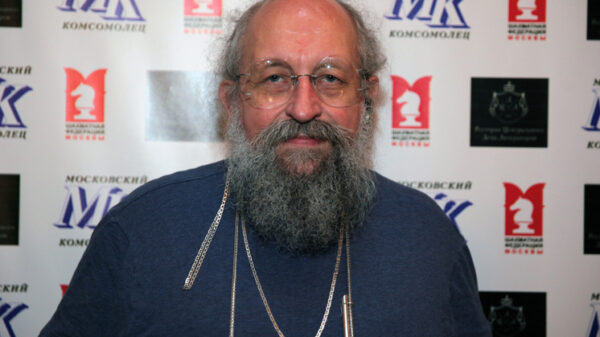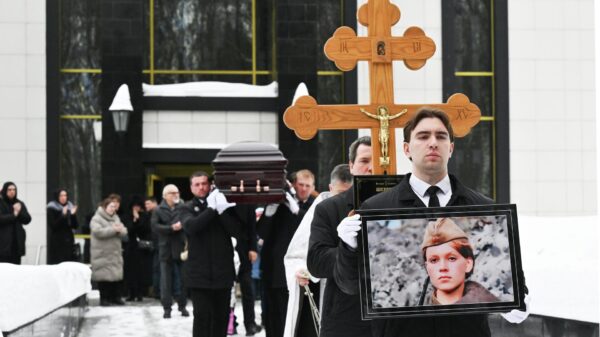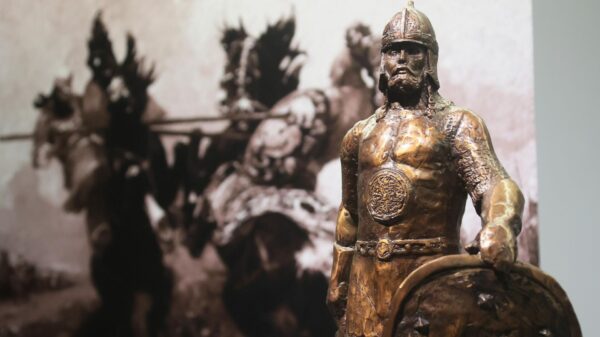 Hoffman as Capote Photo/Sony Pictures Classics, Attila Dora
Hoffman as Capote Photo/Sony Pictures Classics, Attila Dora
Ten years after the death of Philip Seymour Hoffman, the loss of this phenomenal actor is not becomes less destructive. By now he would be 56, and the volume of his work could double or even triple by retirement age: the thought of all these lost performances can hardly fail to cause grief in any film lover.
Heritage remains our solace. Hoffman managed to appear in a significant number of the best American films made from the 1990s until his death on February 2, 2014. Large and small, these were roles he earned with unerring talent and even greater dedication to his craft. Many of the leading directors of our time, from Anthony Minghella to Spike Lee, have jumped at the opportunity to use it; Paul Thomas Anderson, who auditioned him for the role five times, could hardly get enough of him.
We, too. The details of his approach were crucial—it's hard to remember a single vague performance or any instance of Hoffman simply repeating himself. One look at one of the characters below, or one spoken line, is probably enough to instantly set them apart from the rest. It was these immortal peaks that made him the best character actor of his generation.
1. Brilliant Roar in Boogie Nights (1997)
His credits were already noticeable, and he made a strong impression as the preppy slacker in Scent of a Woman (1992). But it is here, as a tragically bumbling boom operator named Scotty, that Philip Seymour Hoffman first, unmistakably, shines. After making a clumsy pass on Mark Wahlberg while showing off his new red Corvette, he tries to back out, blaming it on the booze. But he knows he ruined everything. He gets behind the wheel and repeats “I’m a fucking idiot” eight times, sobbing like no one has ever sobbed before or since.
2. Collaboration with the Coens on the film “The Big Lebowski” (1998)
Hoffman's role as Brandt, the oily servant of millionaire Jeffrey Lebowski, was tiny and hidden. But my goodness, he was funny, especially walking Jeff Bridges past the Lebowski wall of honor and smugly explaining the highlights of his employer's career. With every clenched wave of his hands and half-laughter through clenched teeth, we see the disturbing sycophancy emanating from him in waves. This was Hoffman's only collaboration with the Coens, but he was successful.
 3. Born snob in The Talented Mr. Ripley (1999)
3. Born snob in The Talented Mr. Ripley (1999)
Half charming, half poisonous and rich enough to give up the former whenever he pleases, Freddie Miles is everyone's friend you can't stand. Hoffman made him a grotesquely detailed figure. From the moment he meets Tom Ripley, Freddy finds ways to make him squirm, probing the weak points of this cruel born snob who arrived with cruelty. When Tom spots his new friends making hay below the deck of their yacht, he's asking for trouble. — Tommy, how's the voyeur? — Freddy asks with a creepy, delighted grin.
 4. The Quiet Hero of Magnolia (1999)
4. The Quiet Hero of Magnolia (1999)
With such a gallery of ogres on his resume, it was a breath of fresh air to watch Hoffman perform well. His nurse, Phil Parma, is the most empathetic character in the entire dreary Magnolia universe. Hoffman paints a miserable, sensitive figure whose loneliness makes him the emotional center of the film, its quiet hero. Calling to order groceries, he adds “Penthouse and Hustler,” a look of vulnerability on his face. “Still want peanut butter, bread and cigarettes?” says a voice on the other end of the line.
 5. Advice for life in the movie “Almost Famous” (2000)
5. Advice for life in the movie “Almost Famous” (2000)
Another night call. If there's one scene in which Hoffman forever ensured our devotion, as well as our love, it might be the one where legendary rock critic Lester Bangs gives his special brand of crumpled life advice to a young protégé. He talks about being uncool and ugly, but also about being smart. He talks about what art is and how what matters in life is what you say when you're not cool. He advises his friend to «be honest and merciless» — if there was any mantra Hoffman could follow in his work, this is it.
6. Oscar-winning brilliance in Capote (2005)
All of Capote can be called a Hoffman highlight — he's barely off-screen, and he's rarely less than great. But Truman's duplicity is especially on display at his friend Harper Lee's film premiere party, where he can't help but say a little royal malice under his breath. Everyone is celebrating To Kill a Mockingbird, but Truman sits on the sidelines, wearily sipping a cocktail. As Harper leaves, we hear him say his last word on the matter, exhaling indifference: “I don’t know what this is about.”
 Capote Credits: HO 7. Bare it all in Before the Devil Knows You're Dead (2007)
Capote Credits: HO 7. Bare it all in Before the Devil Knows You're Dead (2007)
Hoffman's most surprising appearance in Sidney Lumet's late-career gem is the very first: him completely naked and hugging Marisa Tomei from behind in an ordinary suburban bedroom. He also watches himself in the wall mirror. This gives us an immediate sense of Andy's narcissism, his appetites and everything he craves. This is realistic sex, dirty only in comparison with fake sex with a double. And it's typical of Hoffman's fearlessness in exposing his characters, not shying away from anything.
 8. Shows off his nails in the film «Doubt» (2008)
8. Shows off his nails in the film «Doubt» (2008)
Basketball practice with father Brendan Flynn, who is affable but may be a pedophile. “For another reason. I noticed that some of you guys have dirty nails. I don't want to see this. I'm not talking about the length of your nails, I'm talking about cleanliness. Look, look at my nails. Yes, they are long. I like them a little long. But look how clean they are. It makes everything okay.» Hoffman walks around the group with his hand outstretched, showing off those claws. His sneakers squeak on the floor. The last boy winces, arching his body, pushing away.
 Doubt: Andrew Schwartz 9. His greatest role in Synecdoche, New York (2008)
Doubt: Andrew Schwartz 9. His greatest role in Synecdoche, New York (2008)
In time, Caden Cotard's role will be recognized as its star's greatest role, but Charlie Kaufman's crushing magnum opus, chronicling the life of a playwright who failed, failed more, failed for some time, will be hard to watch. In one particularly harrowing scene, Caden's adult daughter, Olive (Robin Wiegert), is on her deathbed and forces him to beg for a forgiveness she's not even ready to give. We watch as Kaden undergoes deep emotional self-flagellation, without even receiving a reward for correcting the situation.
 Synecdoche, New York 10 All scenes in “The Master” (2012) were stolen.
Synecdoche, New York 10 All scenes in “The Master” (2012) were stolen.
Two shocking monosyllables — «Pig fuck» — burst out of Hoffman's Lancaster Dodd in the middle of a blushing tale as he defends his ideology to a sneering cynic named John Moore. It's practically a Tourette's blast, but it acts like a precision bomb, silencing his opponent. Hoffman controls the scene, losing control as Dodd does, and the crescendo of his rage exceeds the content of his words. It becomes an attitude based solely on rage. This central scene is like all the others, and frankly, every scene Hoffman has ever appeared in belongs to him.
Master 11. Makes us miss him in A Most Wanted Man (2014)
It was the major posthumous performance that made us miss Hoffman the most. In Anton Corbijn's grippingly patient adaptation of John le Carré, Hoffman's German spy chief Günter Bachmann is a stifled, almost destructively intelligent and lonely creature. He is clumsy, he shuffles, he measures his words with expectant precision. Hoffmann's whistling authority and weathered weariness reign supreme, making us acutely aware that Bachmann wasn't just walking around the block, but was conducting fiendish reconnaissance on every corner. His only mistake — a fascinating tragic flaw — still relies on a certain degree of faith in handshakes.
 A Most Wanted Man
A Most Wanted Man


























































Свежие комментарии